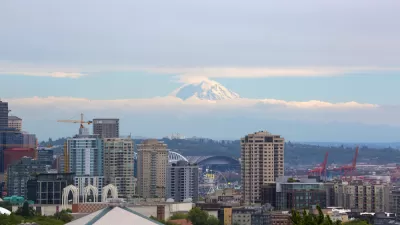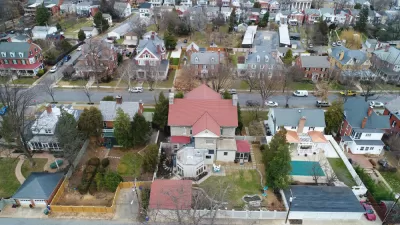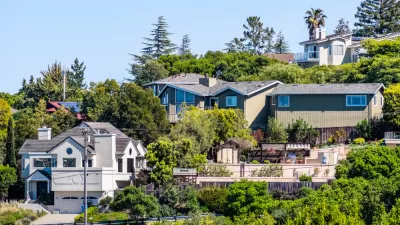An editorial favors one local city's approach to mansionization over another's. When will they ever learn?
It's almost like the Great Recession never happened in the San Gabriel Valley of Southern California: homeowners, developers, and international investors are tearing down single-family detached homes and replacing them with much larger single-family detached homes.
The editorial board of the Pasadena Star-News chimed in on the reignited controversy over mansionization in the cities of San Gabriel and Arcadia. "The city of San Gabriel last month became the latest in the region to begin to investigate solutions to the problems of mansionization in the region, and good for it," begins the editorial. Meanwhile, according to the editorial, nearby Arcadia is sticking its head in the "construction dirt."
So the editorial performs a compare and contrast on the two cities' approach to mansionization pressures. The right way, according to the editorial, as embodied by San Gabriel:
"Quite properly, the main focus in the short run in San Gabriel is on updating its outmoded housing preservation ordinance to protect the excellent stock of appropriately scaled pre-World War II residential neighborhoods in the city. But city leaders are also not shying away from considering a temporary moratorium on the razing of single-family houses in order to build McMansions while it gets its planning act together."
Meanwhile in Arcadia, "an out-of-touch three-member City Council majority has blocked a zoning study that had appropriately been under way…"
Courtney Tompkins, staff reporter for the Pasadena Star-News, reported on the initial findings of the city of San Gabriel's study back in September. For another take on the mansionization controversy, a letter to the editor by George Carney, resident of San Gabriel, says "the furor about 'mansionization' [is] just the latest sad commentary on the reactionary and bigoted thinking of all too many San Gabriel residents."
FULL STORY: San Gabriel plans for an appropriately scaled future: Editorial

Alabama: Trump Terminates Settlements for Black Communities Harmed By Raw Sewage
Trump deemed the landmark civil rights agreement “illegal DEI and environmental justice policy.”

Planetizen Federal Action Tracker
A weekly monitor of how Trump’s orders and actions are impacting planners and planning in America.

Why Should We Subsidize Public Transportation?
Many public transit agencies face financial stress due to rising costs, declining fare revenue, and declining subsidies. Transit advocates must provide a strong business case for increasing public transit funding.

Judge Orders Release of Frozen IRA, IIJA Funding
The decision is a victory for environmental groups who charged that freezing funds for critical infrastructure and disaster response programs caused “real and irreparable harm” to communities.

‘Clybourne Park’ Sets Stage for Housing Equity Discussions
Clybourne Park, a play exploring race, real estate, and community tensions, can set the stage for discussion on the lasting impacts of housing discrimination, gentrification, and the fight for affordability.

Understanding Road Diets
An explainer from Momentum highlights the advantages of reducing vehicle lanes in favor of more bike, transit, and pedestrian infrastructure.
Urban Design for Planners 1: Software Tools
This six-course series explores essential urban design concepts using open source software and equips planners with the tools they need to participate fully in the urban design process.
Planning for Universal Design
Learn the tools for implementing Universal Design in planning regulations.
Caltrans
Smith Gee Studio
Institute for Housing and Urban Development Studies (IHS)
City of Grandview
Harvard GSD Executive Education
Toledo-Lucas County Plan Commissions
Salt Lake City
NYU Wagner Graduate School of Public Service





























